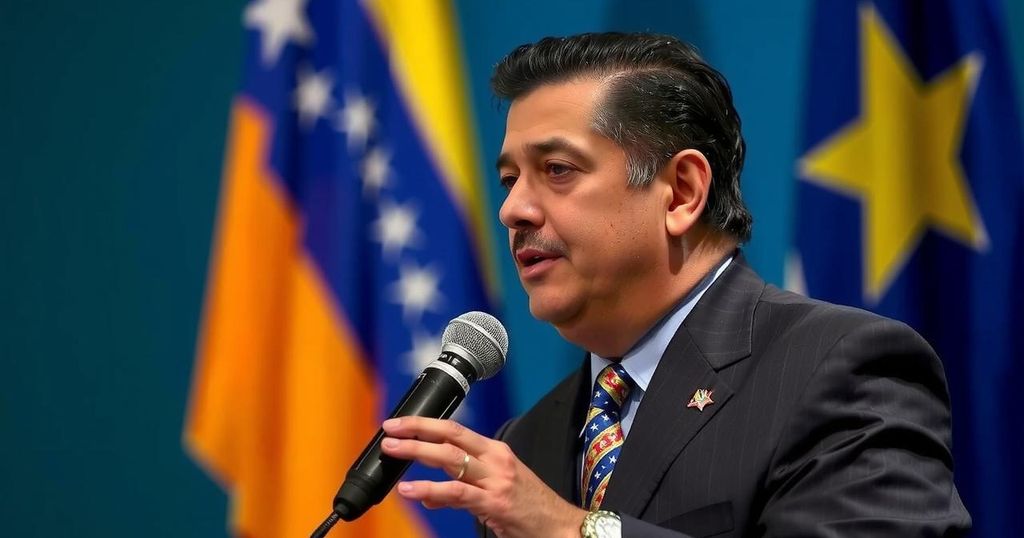Maduro Declares Venezuela Will Not Be Silenced Following Brazil’s BRICS Veto

President Nicolas Maduro of Venezuela vowed that the nation will not be silenced following Brazil’s veto of its BRICS membership application. The Venezuelan government, claiming that the severe economic crisis is due to U.S. sanctions, reacted angrily to Brazil’s decision, viewing it as hostile, especially after a recent summit in Kazan, Russia. Tensions between Maduro and Lula resurfaced over unresolved election result disclosures from Venezuela’s contentious July 28 ballot, with the opposition claiming a significant loss for Maduro.
On October 26, 2024, President Nicolas Maduro of Venezuela asserted that his nation would not be silenced, following Brazil’s recent veto of its application to join the BRICS coalition of emerging economies. This development emerged against the backdrop of an ongoing severe economic crisis in Venezuela, which the government attributes to U.S. sanctions, coupled with the country’s long-standing ambition to integrate into the BRICS framework. During a return from a summit held in Kazan, Russia, Mr. Maduro expressed his frustration at Brazil’s decision, labeling it a “hostile” and “immoral” act, without directly addressing Brazil. He vehemently declared on state television that “no one will block or silence Venezuela, not today, not tomorrow, not ever.” Historically, President Luiz Inacio Lula da Silva of Brazil has been an ally of Mr. Maduro; however, their relations have soured in light of Mr. Maduro’s controversial re-election amid accusations of electoral misconduct. An advisor to Mr. Lula, the former Foreign Minister Celso Amorim, cited a “breach of confidence” on the part of Venezuela, as Mr. Maduro allegedly failed to deliver on a promise to disclose the detailed election results from the July 28 vote. The Venezuelan opposition contends that these results would reveal a conclusive defeat for Mr. Maduro by opposition candidate Edmundo Gonzalez Urrutia, who has since fled to Spain.
Venezuela’s political turmoil has been exacerbated by a protracted economic crisis, with the government frequently blaming external factors such as sanctions imposed by the United States. The BRICS group, originally comprising Brazil, Russia, India, China, and South Africa, aims to enhance cooperation among emerging economies. Nations such as Ethiopia, Iran, Egypt, and the United Arab Emirates have been included in 2024, expanding the coalition’s influence on the global stage. Venezuela’s pursuits to join BRICS symbolized a potential strategic shift for the country amidst its internal struggles and international isolation, hence the significance of Brazil’s veto denial.
In summary, President Nicolas Maduro’s assertive stance against Brazil’s veto demonstrates Venezuela’s ongoing ambition to secure a place within the BRICS group, despite facing significant internal and external challenges. The strained relations between the Maduro administration and Brazil’s leadership underscore the complexity of diplomatic ties within the context of political legitimacy and electoral disputes. As Venezuela confronts its economic and political crises, such international rejections can have profound implications for its future on the global stage.
Original Source: www.thehindu.com







